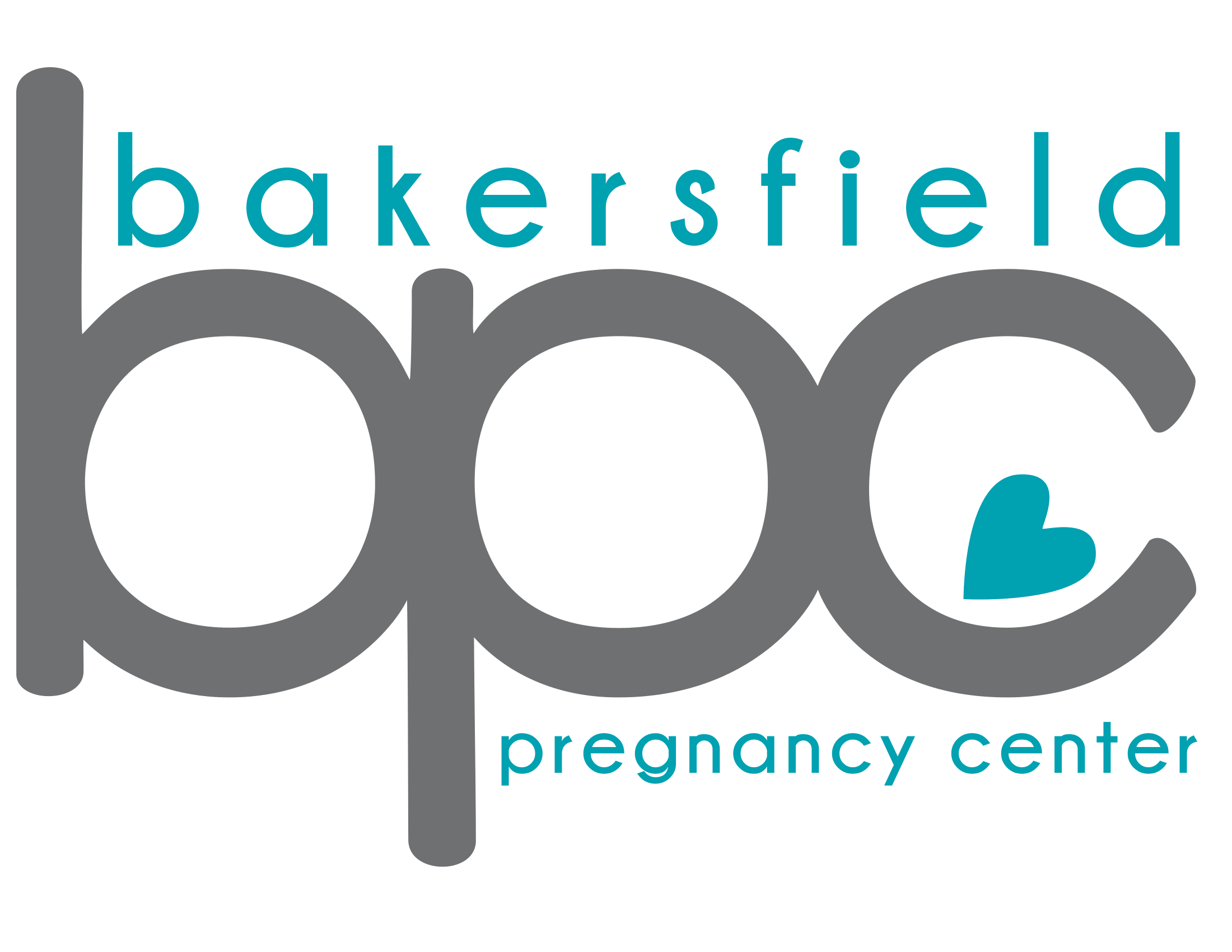The shock of an unplanned pregnancy can make you feel unsure about your decision. As you decide, you’ll want to have all the facts about your options and the information about your pregnancy. Keep reading to learn about the abortion pill and what you need to know beforehand!
How Does the Abortion Pill Work?
With the abortion pill, a woman intentionally takes medication to terminate her pregnancy. Abortion pills may also be called a medical abortion, chemical abortion, RU-486, or at-home abortion.
The process involves two medications. The first medication, mifepristone, interferes with progesterone receptors and prevents the pregnancy from developing. The second medication, misoprostol, causes the uterus to cramp and expel the pregnancy.[1]
Can Your Gynecologist Give You the Abortion Pill?
Only certified doctors or mid-level providers can prescribe abortion pills. They will determine whether a woman qualifies for an abortion based on the gestational age. They will also rule out contraindications to an abortion such as an ectopic pregnancy, drug allergies, blood thinning disorders, an IUD, or other medical disorders.[2]
How Much Does the Abortion Pill Cost?
Currently, California law requires abortion services to be free of charge. Insurance providers are not allowed to impose a deductible, coinsurance, copayment, or any other cost-sharing requirement on coverage for abortion and abortion-related services.[3]
However, before an abortion, it’s crucial to receive an ultrasound to determine whether your pregnancy is viable. At Bakersfield Pregnancy Center, we provide cost-free pregnancy confirmation and limited ultrasounds so you can make a fully informed decision for your pregnancy.
What are the Risks of the Abortion Pill?
Like any medical procedure or medication, the abortion pill has risks.[4] First, women wanting an abortion should rule out an ectopic pregnancy. An ectopic pregnancy develops outside of the uterus and can be life-threatening if not properly treated. So, before taking abortion pills, it is recommended that a woman receive an ultrasound first.
Further complications after taking mifepristone include prolonged bleeding, an infection, an allergic reaction, or an incomplete abortion, which could require further medical intervention.
How Effective is the Abortion Pill?
Up to 8% of women who take the abortion pill require a further surgical procedure because the abortion was incomplete.[5]
Where Can I Go to Get an Abortion Pill?
Some providers require a woman to take the first pill in the abortion clinic. Others, depending on state laws, can obtain abortion pills from certified pharmacies. Women should never order abortion pills online from a foreign pharmacy. The FDA has not evaluated those pills for safety[6] and could contain the wrong amount of medication.
How Far Along Can You Take the Abortion Pill?
Women qualify for the abortion pill only up until 10 weeks of gestation.[7] Gestational age can be estimated based on a woman’s last menstrual period, but an ultrasound is the most exact way to determine the gestational age.
Call Bakersfield Pregnancy Center for a free ultrasound today.
How Long Does the Abortion Pill Take to Work?
During the abortion pill regimen, a woman takes mifepristone first. Then, 24 to 48 hours later she takes misoprostol which causes her uterus to cramp and to expel the pregnancy. She may continue to experience bleeding for about 9 to 16 days and could bleed up to 30 days. [8] She should follow up with a provider 7 to 14 days after taking the abortion pill to evaluate for complications.[9]
Does the Abortion Pill Hurt?
Everyone tolerates pain differently, but on average, women report a higher level of pain than they expected. They describe the pain as worse than menstrual cramps and compare it to labor contractions.[10]
Is Plan B an Abortion Pill?
Plan B is an emergency contraception and can be referred to as the morning-after pill. Emergency contraception and abortion pills are different. Emergency contraception attempts to prevent a pregnancy from starting by delaying ovulation and preventing fertilization, but the abortion pills end a pregnancy that has already begun.
Abortion Pill Information in Bakersfield, CA
Weighing the pros and cons of abortion can feel overwhelming. But you aren’t alone! Visit Bakersfield Pregnancy Center to speak with our qualified and compassionate staff. We provide a non-judgmental space for you to process your questions and concerns.
Give us a call at (661)-326-1907 to schedule your appointment online today!
Please be aware that Bakersfield Pregnancy Center does not provide or refer for abortion services.
Sources
- Cleveland Clinic. (2024). Medical Abortion. Cleveland Clinic. https://my.clevelandclinic.org/health/treatments/21899-medical-abortion
- FDA. (2023, January). Questions and Answers on Mifepristone for Medical Termination of Pregnancy Through Ten Weeks Gestation. FDA. https://www.fda.gov/drugs/postmarket-drug-safety-information-patients-and-providers/questions-and-answers-mifepristone-medical-termination-pregnancy-through-ten-weeks-gestation?sm_guid=NTU1NzgyfDYzMDE1OTM2fC0xfGppbUBha2ZhbWlseS5vcmd8NTY4OTI4MXx8MHwwfDE5OTYwMDk4OHwxMDg2fDB8MHx8NTQ3NzI2fDA1
- Senate Bill No. 245. California Legislative Information . (2022, March 22). https://leginfo.legislature.ca.gov/faces/billTextClient.xhtml?bill_id=202120220SB245
- What is the Abortion Pill? (2024, January 10). Pregnancy Decision Line. https://pregnancydecisionline.org/what-is-the-abortion-pill/
- Danco Laboratories, LLC. (2022). MEDICATION GUIDE: Mifeprex. Danco Laboratories, LLC.https://www.accessdata.fda.gov/drugsatfda_docs/label/2011/020687s014lbl.pdf
- FDA. (2023, January).Questions and Answers on Mifepristone for Medical Termination of Pregnancy Through Ten Weeks Gestation.
- Danco Laboratories, LLC. (2022). MEDICATION GUIDE: Mifeprex.
- Ibid.
- FDA. (2023, January). Questions and Answers on Mifepristone for Medical Termination of Pregnancy Through Ten Weeks Gestation.
- Georgsson, S., & Carlsson, T. (2019). Pain and pain management during induced abortions: A web-based exploratory study of recollections from previous patients. Journal of Advanced Nursing, 75(11), 3006–3017. https://doi.org/10.1111/jan.14132

